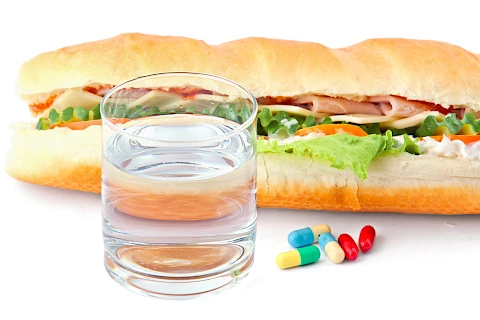
As our loved ones age, managing their health becomes more complex. Food and medicines are two key components that require careful attention. When these two elements work together, seniors can maintain better health and enjoy a higher quality of life. However, food-drug interactions can pose risks. That's why it's vital to understand these and manage them effectively.
Medication and Food Interactions
Certain foods can influence how prescriptions work in the body. For seniors who often take several pills, having a good grasp of these effects is necessary. For example, grapefruit can interfere with the digestive system's enzymes that break down meds. This can lead to too much or too little medication entering the bloodstream, affecting its efficacy.
There are various everyday food-drug interactions to be wary of:
- Dairy products like tetracyclines can affect antibiotics, as calcium may interfere with absorption.
- Leafy greens high in Vitamin K can reduce the effectiveness of blood thinners like warfarin.
- High-fiber foods, like digoxin, can impact absorption and be used for heart conditions.
By being aware of such interactions, caregivers can help manage a senior's diet to support the drug's effectiveness.
The Significance of Consistent Meal Times
Consistent meal times are vital for food-drug interaction efficacy in seniors. Prioritizing a regular mealtime routine can significantly improve their health outcomes.
- Enhance Medication Effectiveness: Regular meal times ensure meds are taken optimally, particularly for conditions like diabetes, preventing adverse effects.
- Establish a Reliable Routine: Create and maintain a daily meal schedule that aligns with medication times, using reminders to support adherence.
Strategies for Caregivers
Managing a senior's nutrition alongside their medications requires planning and communication. Keeping a detailed list of all prescriptions, including dosages and food interactions, is essential to share with healthcare providers. Consulting with a pharmacist or physician can help caregivers understand potential food-drug interactions better.
Educating oneself about the foods that interfere with specific meds is crucial. Preparing balanced meals that consider any food restrictions based on prescriptions ensures optimal health outcomes. Involving seniors in meal planning can encourage adherence and consideration of their preferences.
Effective communication with healthcare providers is needed. Keep them informed about dietary changes and discuss concerns about food interactions with prescriptions. This proactive approach ensures seniors maintain good health through optimized nutrition and prescription use.
Senior Helpers Reno Offers Professional Caregiver Services
The interplay between food-drug interactions is vital for elderly health. These small steps in managing nutrition and prescriptions in tandem can lead to improved health outcomes. If you're seeking personalized, comprehensive in-home healthcare solutions, contact Senior Helpers Reno. Our dedicated team is committed to providing the best care for seniors in the Reno and Sparks area.